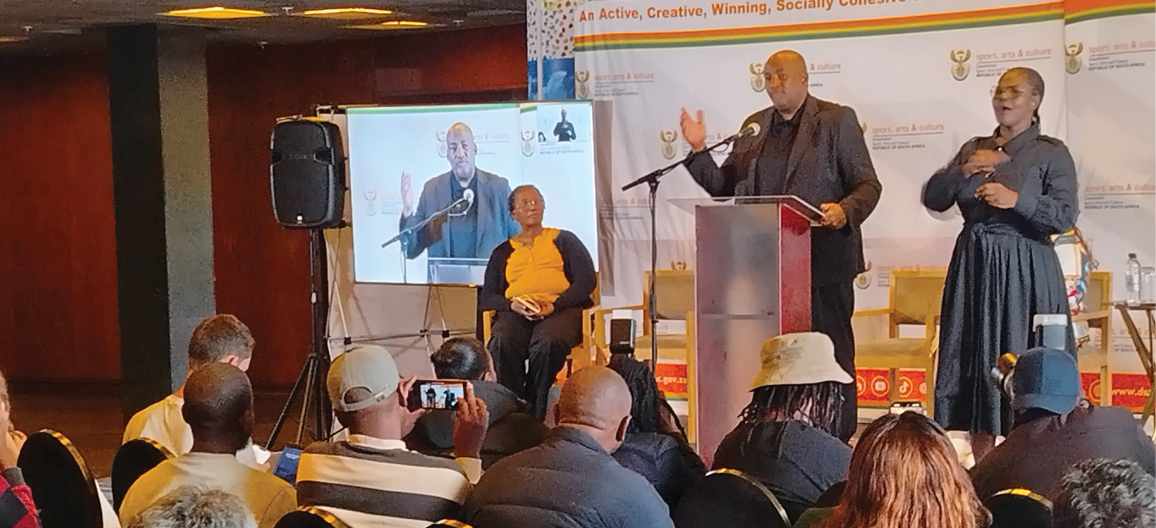South Africa has  taken a significant step in the global fight against digital harm in sport, following Minister of Sport, Arts and Culture Gayton McKenzie’s signing of the United Against Online Abuse (UAOA) Charter on 10 November 2025.
taken a significant step in the global fight against digital harm in sport, following Minister of Sport, Arts and Culture Gayton McKenzie’s signing of the United Against Online Abuse (UAOA) Charter on 10 November 2025.
The charter brings together governments, international sporting bodies, technology companies and researchers to combat online abuse and strengthen athlete protection.
Minister McKenzie said the signing “underscores government’s commitment to protecting athletes, officials, journalists and fans from online abuse, while empowering young people to build resilience in the online environment.”
He added that South Africa is ready to work with international partners “to advance this vital work across all sporting disciplines.”
The development follows the Minister’s recent media briefing at Freedom Park, where he addressed issues affecting local sport, including the “yellow-card blunder” that briefly jeopardised Bafana Bafana’s World Cup qualification. “South Africans deserve answers,” he said, explaining that the SAFA report showed the incident was not negligence but “a strange and highly unusual set of coincidences.”
He noted that the situation exposed deeper structural challenges: “Our national team is operating under immense strain, with far too few hands doing far too much work… Bafana Bafana are still under-resourced. That’s the uncomfortable truth.”
Despite this, McKenzie urged unity, adding: “Let us give Bafana our full support – the players, the coaches, and yes, the officials. Mistakes happen, lessons are learned, and we move forward stronger.”
To reinforce that support, he announced R5 million in funding for Bafana Bafana, alongside allocations to Banyana Banyana, Amajita, the female Proteas, the women’s rugby team and Amajimbos.
He also reaffirmed progress on introducing Video Assistant Referee (VAR) technology, stressing that VAR is “about protecting the integrity of our game, restoring trust, and ensuring that South African football meets global standards.”
The Minister linked these reforms to his broader campaign for accountability in sports administration. “We cannot continue to fund maladministration. It cannot be business as usual,” he said, citing Basketball South Africa as a case where failures harmed both the code and the country. “This is unacceptable… We are Government,” he emphasised.
McKenzie reiterated that the department is not abandoning federations but rewarding excellence: “When we see commitment, good governance and results, we reward it.”
Concluding, he said: “We are moving. We are challenging old systems, cleaning up where there was chaos, and building where there was neglect… Accountability and progress are not opposites. They are partners.”



 Facebook
Facebook Twitter
Twitter WhatsApp
WhatsApp